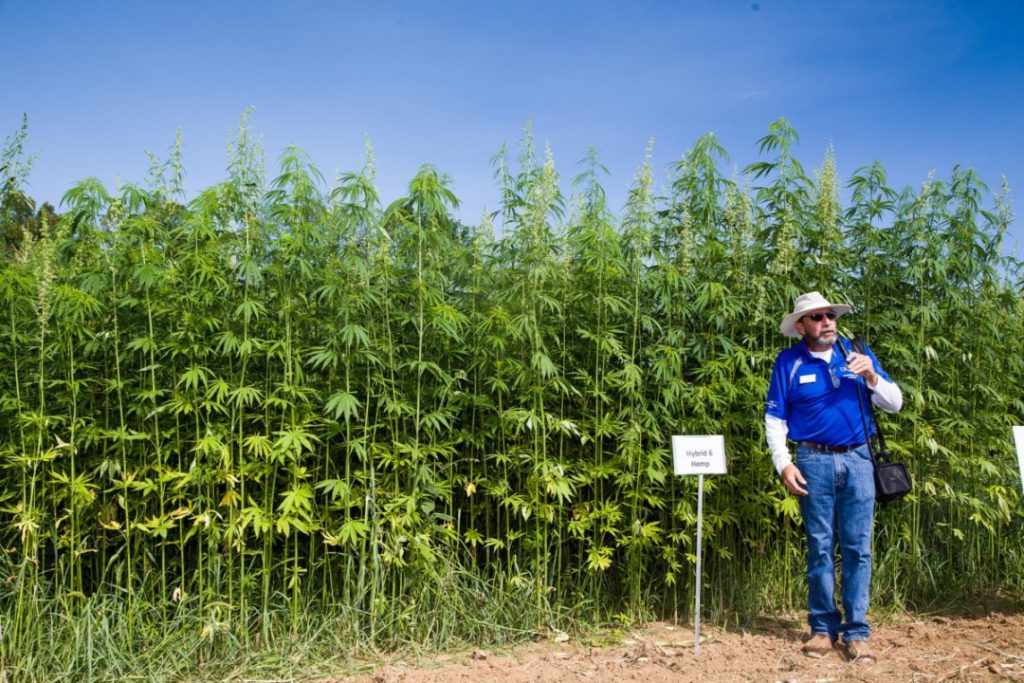
Ninth Circuit Refuses to Address Legality of Interstate Transport of Hemp
In the ongoing case of Big Sky Scientific LLC v. Jan Bennetts et al, the Idaho State Police seized over 6,000 pounds of industrial hemp (cannabis plant containing .3% THC or less) that was being transported through Idaho from Oregon to Colorado and charged the driver of the truck with felony drug trafficking. Idaho police also filed a civil complaint in state court against the hemp processor. The Idaho civil case was stayed pending the resolution of criminal proceedings. In turn, the hemp processor, Big Sky Scientific LLC, filed a motion for a preliminary injunction in federal court demanding that Idaho State Police turn over the hemp and desist from seizing future shipments, arguing that the 2018 Farm Bill protects the interstate shipment of hemp and hemp derivatives. The District Court denied Big Sky’s motion holding that the protections of the 2018 Farm Bill are not afforded to hemp that is produced outside of a USDA-approved program. In other words, since the USDA has not yet issued regulations, states like Idaho could seize the hemp.
The large amount of publicity surrounding the Big Sky case, prompted the United States Department of Agriculture (USDA) to issue a memorandum stating it did not concur with the lower federal court’s reasoning regarding the shipment of hemp. The USDA memorandum explicitly noted that states and Indian tribes cannot block the shipment of lawfully produced hemp, but also added that States and Indian tribes are free to pass more stringent regulations concerning the production of hemp within that state or territory.
On appeal, the Ninth Circuit was presented with this crucial question regarding the legality of interstate transportation of hemp reversed the District Court’s decision. However, the Ninth Circuit declined to rule on this issue, choosing to abstain from addressing the federal question altogether until both the Idaho civil and criminal actions were resolved.
The Big Sky case is indicative of the broader state of confusion that plagues the cannabis and hemp industries regarding the interstate transport of hemp and hemp derivatives like CBD. As of yet, the United States Congress has not made any substantial changes to the Controlled Substances Act (CSA) to definitively address this question.
The recent 2018 Farm Bill (“Agriculture Improvement Act of 2018”), attempted to distinguish certain products associated with the cannabis sativa plant from the other controlled substances regulated by the CSA. Notably, the Farm Bill removed “hemp” from the CSA definition of “marijuana,” and expressly excluded THC in “hemp” from scheduling under the CSA. The Bill also delineates that only cannabis sativa plants that contain less than 0.3% THC qualify as “hemp”. Arguably this move has led to even more confusion, as many consumers mistakenly believed that there were no prohibitions whatsoever on the sale and processing of hemp and hemp-related products. However, many restrictions on hemp-derived products are still in place.
The USDA recently promulgated an interim rule (7 CFR Part 990, Establishment of a Domestic Hemp Production Program) which outlines the process States and Tribal Lands must follow to create a regulatory program to achieve federal compliance. Section VII of that interim rule states, “Nothing in this rule prohibits the interstate commerce of hemp. No State or Indian Tribe may prohibit the transportation or shipment of hemp produced in accordance with this Rule [and the 2018 and 2014 Farm Bills] … through the State or the territory of the Indian Tribe.” The forgoing may create a federal safe harbor for shipping hemp containing less than .3% THC by volume throughout the 50 states, if adopted in the final rule. It will remain to be seen if the rule will be enough to compel states like Idaho to desist seizing and prosecuting those involved in the transport of hemp across state lines, without additional legal challenges in federal court. In the meantime, anyone attempting to ship hemp, and hemp derivatives including CBD products, should consult with an experienced attorney, like the ones at Ion Law.

